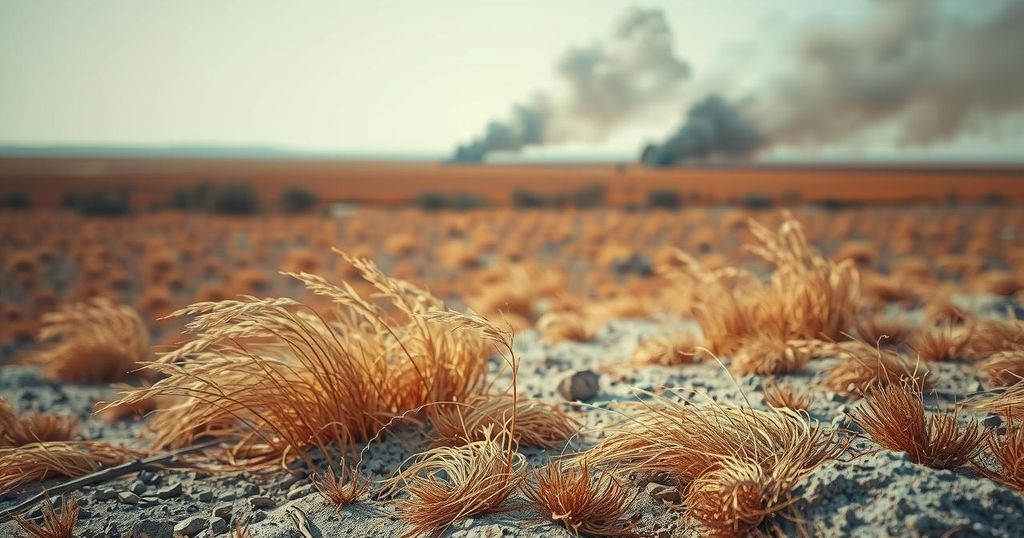Firefighters Struggle to Contain Wildfire in Ofunato Amid Drought Conditions

In Ofunato, Japan, wildfires are worsening due to severe drought and high winds, exacerbated by climate change. Rainfall is at a record low, and fire conditions are increasingly critical. Efforts to combat the fire are hampered by terrain challenges and declining firefighter numbers. Increased wildfire incidents, largely from human activity, emphasize the need for improved prevention and response strategies.
Firefighters in Ofunato, Japan, face significant challenges as drought conditions combined with strong winds have exacerbated a wildfire. Normal February rainfall is 41 millimeters, but only 2.5 millimeters fell this year, leading to dangerously dry conditions. Climate change is increasing the risk of wildfires, making effective firefighting and preparation crucial as stated by experts.
An office worker and fire brigade leader reported, “The flames spread quickly in the wind, and we were enveloped in black smoke. I couldn’t even see where I was,” highlighting the chaos right after the blaze ignited. According to Koji Tamai, a research director, wind speeds of 6 mps increase fire spread by ten times compared to 2 mps, and dry foliage fueled the rapid fire expansion.
The fire engulfed over 600 hectares within eight hours, prompting a request for assistance from the Ground Self-Defense Force. Strong winds hindered aerial water drops, and the area’s rugged terrain complicated fire engine access. Insufficient water sources were determined, impeding effective firefighting efforts.
The Ofunato Fire Department noted a decline of over 300 fire brigade members in the past decade, now totaling about 620. Aging forest owners have been unable to maintain their land, leading to hazardous conditions with accumulated dead branches. These factors amplify wildfire risks significantly.
Human activity is identified as the major wildfire catalyst, with 32% of fires initiated by open-air burning. In response to fire incidents over recent years, the FDMA has urged municipalities to implement preventive measures and create firebreaks. However, many fires continue to spread rapidly, posing ongoing challenges.
Kazunori Kuwana, a professor, commented on the firefighting response, noting, “The inability to conduct aerial firefighting on the first day likely contributed to the fire’s spread,” while stressing the need for improved strategies for early firefighting. Global warming is expected to amplify extreme weather patterns, increasing the likelihood of large-scale wildfires, necessitating proactive measures to prevent fire ignitions.
The wildfire in Ofunato underscores the urgency of addressing increasing wildfire risks driven by climate change and human actions. Effective firefighting strategies, community awareness, and land management practices are critical in curbing the spread of wildfires. As conditions worsen, preparations for extreme weather events must prioritize prevention and rapid response to safeguard communities and forests alike.
Original Source: www.postguam.com







